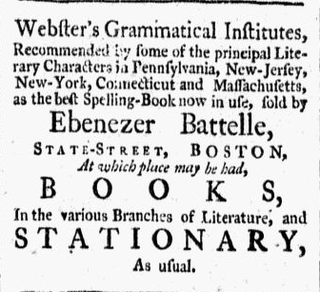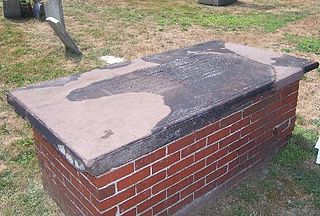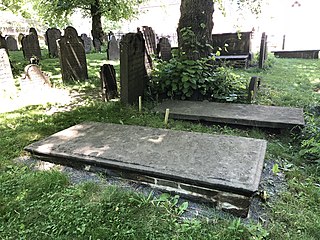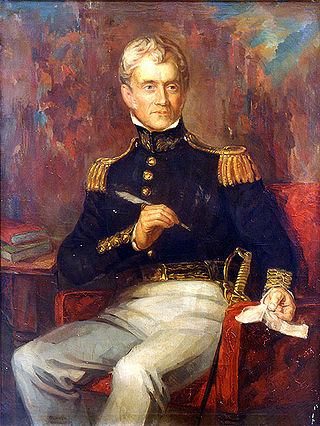Related Research Articles

The Boston Brahmins or Boston elite are members of Boston's historic upper class. In the late 19th century through the mid-20th century,they were often associated with a cultivated New England accent,Harvard University,Anglicanism,and traditional British-American customs and clothing. Descendants of the earliest English colonists are typically considered to be the most representative of the Boston Brahmins. They are considered White Anglo-Saxon Protestants (WASPs).

Charles Humphrey Atherton,an American Federalist politician,banker and a distinguished attorney from New Hampshire.

Rev. Nathaniel Thayer I was a congregational Unitarian minister.
Thomas Dwight was a United States representative from Massachusetts.

Otis C. Norcross served as the nineteenth Mayor of Boston,Massachusetts,from January 7,1867 to January 6,1868 during the Reconstruction era of the United States. Norcross was a candidate (1861) for the Massachusetts State House of Representatives;served as a member of the Boston Board of Aldermen from January 6,1862 to January 2,1865;chairman of the Boston Board of Aldermen from January 4,1864 to January 2,1865;and served as a trustee of the City Hospital,1865 &1866;and a member of the Massachusetts Governor's Council,under Gov. William Claflin (1869).
Robert Taft Jr. (1674–1748),also known as Robert Taft II,was a Massachusetts politician. He was born in Braintree,Massachusetts Bay Colony. He died at age 74 at Uxbridge,Worcester County,Massachusetts.

The Quincy family was a prominent political family in Massachusetts from the mid-17th century through to the early 20th century. It is connected to the Adams political family through Abigail Adams.
Colonel John Quincy was an American soldier,politician and member of the Quincy political family. His granddaughter Abigail Adams named her son,the future president John Quincy Adams,after him. Two days after his great-grandson's birth,Quincy died. The city of Quincy,Massachusetts,is named after him.

Ebenezer Battelle (1754–1815) was an American Revolutionary War veteran,a bookseller in Boston,Massachusetts,and a settler of Marietta,Ohio,in the late 18th century.

Major-General Humphrey Atherton,an early settler of Dorchester,Massachusetts,held the highest military rank in colonial New England. He first appeared in the records of Dorchester on March 18,1637 and made freeman May 2,1638. He became a representative in the General Court in 1638 and 1639–41. In 1653,he was Speaker of the House,representing Springfield,Massachusetts. He was chosen assistant governor,a member of the lower house of the General Court who also served as magistrate in the judiciary of colonial government,in 1654,and remained as such until his death." He was a member of the Ancient and Honorable Artillery Company of Massachusetts and held the ranks of lieutenant and captain for several years before rising to the rank of major-general. He also organized the first militia in Massachusetts.
The Braintree Instructions was a document sent on September 24,1765 by the town meeting of Braintree,Massachusetts to the town's representative at the Massachusetts General Court,or legislature,which instructed the representative to oppose the Stamp Act,a tax regime which had recently been adopted by the British Parliament in London. The document is significant because,following the Virginia Resolves,it was among the earliest in British America to officially reject the authority of Parliament over the colonies in North America. The instructions were written by John Adams,who would ten years later become a key figure in the American Revolution and ultimately be elected the second President of the United States in 1796.
Henry Adams was an English colonial farmer. Also known as Henry Adams of Braintree,he was a patrilineal emigrant ancestor of U.S. Presidents John Adams and John Quincy Adams,2nd great grandfather of U.S. Founding Father Samuel Adams,and 9th great grandfather of U.S. President Calvin Coolidge.

Samuel Atherton was a Massachusetts businessman who served as a member of the Massachusetts House of Representatives.

Benjamin Kent (1708–1788) was a Massachusetts Attorney General (1776–1777) and then acting Attorney General during much of Robert Treat Paine's tenure (1777–1785). He was appointed seven successive terms. Prior to the American Revolution,Kent was notable for his representation of slaves suing their masters for their freedom,which contributed to the demise of slavery in Massachusetts. He was a member of the North End Caucus and prominent member of the Sons of Liberty,which formed to protest the passage of the Stamp Act of 1765. The efforts of the Sons of Liberty created the foundation for the Boston Tea Party. Kent called for independence early in the American Revolution.
Ebenezer Thayer,Jr. was a Massachusetts farmer,military officer,town official,and politician who served in both branches of the Massachusetts legislature,as a member of the Massachusetts Governor's Council;and,from 1793 to 1794,as the first sheriff of Norfolk County,Massachusetts.

The Thayer family is an American Boston Brahmin family. They are descended from early settlers and brothers Thomas Thayer (1596–1665) and Richard Thayer (1601–1664).
Daniel Quincy,trained as a silversmith under John Hull,his uncle by marriage. Daniel lived with John and Judith Hull from the age of seven and was trained in the Hull and Sanderson mint on Summer Street (Boston) as a goldsmith producing the pine tree shilling. Hull treated young Daniel as his own son. Daniel and Ann Quincy were married by John Hull Esq.
Colonel Peter Atherton was a farmer,soldier and office holder with an extensive record of public service as a magistrate and as a representative for Harvard,Massachusetts,at the Great and General Court.

Ebenezer Alden was an American medical biographer,Army surgeon,and physician.

Ebenezer Atherton Hunt was an American politician from Weymouth,Massachusetts,who served in the Massachusetts House of Representatives,after being elected to the 94th Massachusetts General Court in 1872. He represented the eighth district of Norfolk County,Massachusetts. He was elected to the Massachusetts Senate for two terms,representing Norfolk and Plymouth counties,serving in the 96th Massachusetts General Court,and the 97th Massachusetts General Court.
References
- ↑ "History". Norfolk County Sheriff's Office. Archived from the original on 2016-12-23. Retrieved October 25, 2016.
- ↑ Duane Hamilton Hurd, ed. (1884). "History of Norfolk County, Massachusetts: With Biographical Sketches of Many ..."
- ↑ Elisha Thayer (1835). "Family Memorial: Part 1. Genealogy of Fourteen Families of the Early Settlers of New England, of the names of Alden, Adams, Arnold, Bass, Billings, Capen, Copeland, French, Hobart, Jackson, Paine, Thayer, Wales and White". Hingham. p. 139.
- ↑ Braintree (Mass. (1886). "Records of the Town of Braintree, 1640-1793".
- ↑ "Descendants of Thomas Thayer". freepages.genealogy.rootsweb.ancestry.com. Retrieved 2017-06-01.
- ↑ "Diary of John Adams". Massachusetts Historical Society.
- ↑ "Orderly books of Ebenezer Thayer, Jr. (1776-1791)". The Huntington Library.
- ↑ "Colonel Ebenezer Thayer". Daughters of the American Revolution (DAR).
- ↑ "Proceedings of the American Antiquarian Society, Volume 55". American Antiquarian Society. 1947.
- ↑ "Thayer genealogy".
- ↑ Eulogy of Atherton Thayer. Stanford University. 1798.
- ↑ "Funeral Address of Atherton Thayer (14 pages)". 1799.
- ↑ Massachusetts (1810). "Acts and Resolves Passed by the General Court of Massachusetts".
- ↑ Massachusetts. Office of the Secretary of State (1885). "List of Persons Whose Names Have Been Changed in Massachusetts. 1780-1883".
- ↑ Roberts, Oliver Ayer (1897), History of the Military Company of the Massachusetts, Now Called the Ancient and Honorable Artillery Company of Massachusetts. 1637-1888 Volume II,- 1738-1821, Boston, Massachusetts: Ancient and Honorable Artillery Company, p. 239